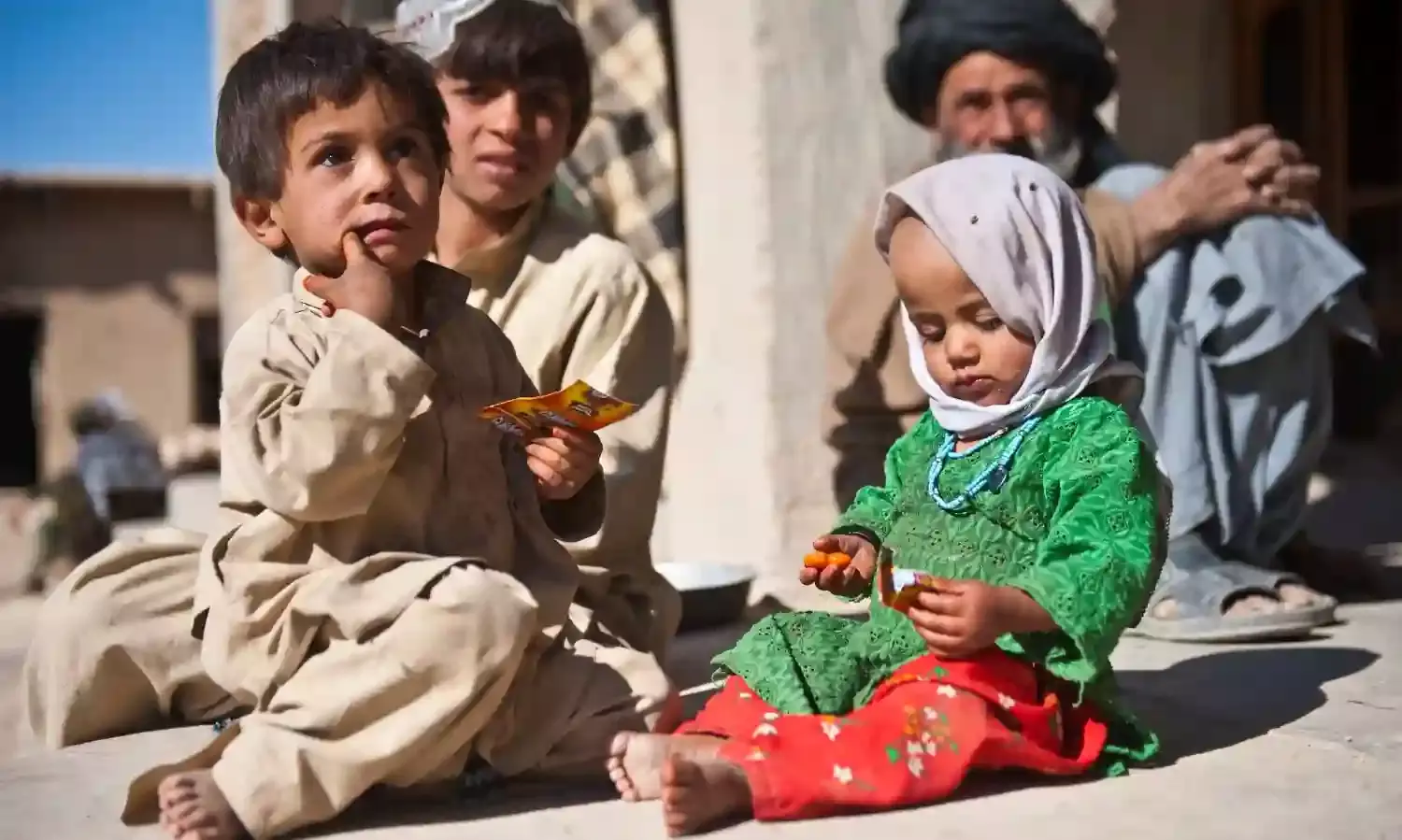Don't Forget the People of Afghanistan
70% of the population is unable to meet essential food, and non-food needs;

An update on the hunger hotspots of the world issued by the FAO-World Food Program in September 2022 drew particular attention to the serious situation in Afghanistan. This review stated that loss of life due to hunger may be already occurring, the levels of food insecurity and 'significant loss of life' are likely to increase from November.
Another harsh winter will coincide with the lean season, typically beginning in February. A prolonged drought and other disasters, inflation, gender discrimination, decline of humanitarian assistance, sanctions and freezing of Afghanistan assets by the USA and allies have all contributed to this tragic situation.
Right through 2022 some of the most experienced humanitarian workers have been warning that the present situation is perhaps the worst humanitarian crisis here in recent decades. This despite the fact that recent decades have seen so much distress.
In June the International Federation of Red Cross said that 70% of the people here are unable to meet essential food and non-food needs. Earlier in the year the UN Secretary General expressed concern at the "epic humanitarian crisis on the verge of a development catastrophe."
In late April, several independent human rights experts linked to the United Nations said, in a joint statement released by the United Nations Human Rights (Office of the High Commissioner), that in this country with a total population of about 40 million, about 23 million need food assistance while as many as 95% have insufficient food consumption.
They said that the growing humanitarian crisis in Afghanistan has put at serious risk the lives of more than half of the country's population, with a disproportionate impact on women and children. The nearly 4 million internally displaced persons and the nearly 3.5 million people seeking refuge in neighboring countries are also highly vulnerable.
These UN linked human rights experts expressed serious concern at the freezing of Afghanistan central bank assets by the USA which has led to denial of funds for essential help needed by people immediately. They put forward a clear demand, "We call on US government to take into serious consideration the growing humanitarian crisis in Afghanistan and to re-assess its decision to block the Da Afghanistan Bank's foreign assets."
This decision to freeze assets (as well as imposition of other sanctions by the USA and its allies), apart from denying funds for urgent relief and disrupting essential banking functions, has also led to several indirect and wider adverse impacts. As the statement of UN-linked human rights experts stated, in the prevailing conditions "humanitarian actors face serious operational challenges due to the uncertainty caused by banks' zero risk policies and over-compliance with sanctions."
Thus on the one hand it becomes more difficult to take relief to the weaker sections, and on the other hand middle class members including those used to living earlier on more or less regular salaries are being pushed into poverty.
Soon after the US army left in a hurry and the Taliban seized power in 2021, the US froze Afghan Central Bank assets worth 7 billion dollars. Its allies froze assets worth an additional 2 billion dollars, apart from imposing other sanctions.
Following growing appeals and demands to de-freeze these assets, the USA announced in September 2022 to make available half the frozen assets, about 3.5 billion dollars, to a foundation for utilisation in Afghanistan while the remaining half was diverted to help the 9/11 victims.
This diversion has been criticised as being highly unfair, even by some representatives of 9/11 victims who have publicly stated that they do not want funds which are meant for the most highly distressed people of Afghanistan.
An important question, has at least the other half been utilised for preventing hunger and starvation in Afghanistan? As a recent report by Sarah Lazare writing for 'In These Times' (in mid-December) has revealed, on the basis of interviews with two of the trustees who were supposed to handle the use of 3.5 billion dollars for helping the people of Afghanistan, that in the three months following the 'de-freeze', these have not been used for this purpose and immediate prospects for these being used to help the people do not appear to be bright at all.
Meanwhile, there are also reports that substantial parts of the diverted funds are also being cornered to a significant extent by rich lawyers and lobbyists instead of really reaching the 9/11 victims.
Recently UN humanitarian help officials in Afghanistan stated that throughout the year they struggled with shortage of funds, particularly while making preparations for winter, when temperature can go down to minus 25 degrees Celsius in some parts, and they were struggling to mobilize $768 million.
Compare this with the $9000 million or $ 9 billion held by the USA and its close allies very unjustly at a time when Afghanistan is passing through hunger deaths.
In such conditions the distress of the people of Afghanistan is likely to further escalate sharply. Already there are reports ( published in The Guardian, UK, and elsewhere) of a booming kidney sale market. desperate people are coming forward to sell their kidneys to feed an international, substantially illegal market for organs. There are reports of kidney sale prices declining by a half or more and still more people willing to sell even at this low price.
Hence the campaign for justice should be stepped up substantially to ensure that the entire 9 billion dollars are returned to Afghanistan for priority use to reduce hunger and other distress. In addition the humanitarian assistance and development effort should be stepped up significantly.

